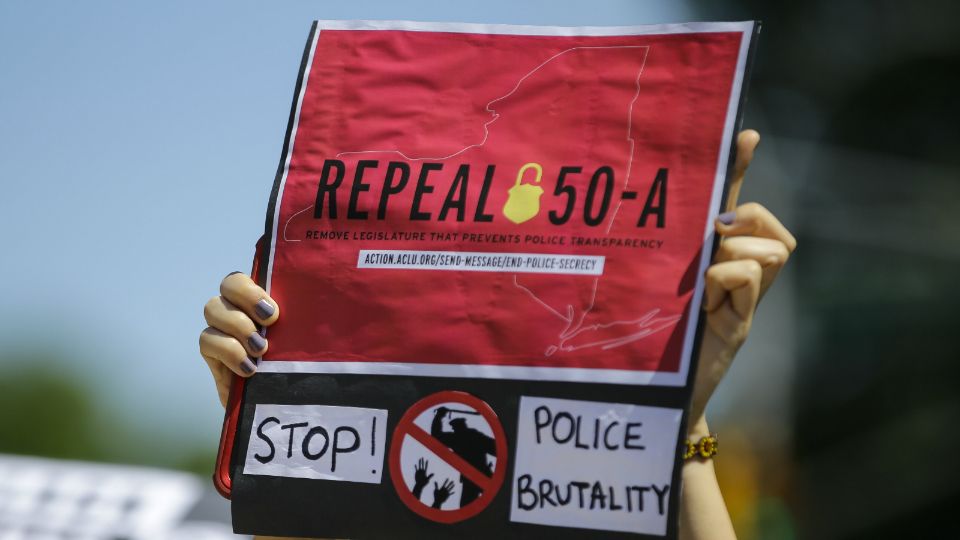The killing of George Floyd sparked nationwide protests and in New York have led to a flurry of bills to address systemic police brutality called the “Say Their Name” reform agenda.
What You Need To Know
- A slew of new laws under the “Say Their Name” reform agenda are being introduced and passed through the legislature including S6601A, a bill that would require law officers to provide medical, mental health care if needed
- In North America, more than 30 percent of people with serious mental illness first engage with the mental health system through an encounter with law enforcement
- In every county in the U.S. that has both a county jail and county psychiatric facility, more seriously mentally ill people are incarcerated than hospitalized
Some of those bills address: transparency of prior disciplinary records for law enforcement by repealing 50-A, banning the use of chokeholds by law enforcement and designating the attorney general as an independent prosecutor for the deaths of unarmed people by law enforcement.
One of the bills introduced is S6601A, which would require that when a person is injured in the custody of law enforcement that office or entity has to provide medical and mental health attention to a person.
“Too many people in police custody have suffered or died because those responsible for them neglected to provide medical attention to injuries or illnesses,” Assembly member Nathalia Fernandez, D-NY, said in a press release. “This bill is critical to protecting individuals in police custody and to prevent this needless suffering in the future.”
In North America, more than 30 percent of people with serious mental illness first engage with the mental health system through an encounter with law enforcement, according to the Study in Blue and Grey by Canadian Mental Health Association.
Because of decades-long defunding and deinstitutionalization, more and more Americans who are struggling with mental health are interacting with law enforcement and ending up in county jails — including in Western New York.
There are more people with mental illness incarcerated than those receiving medical treatment in hospitals, according to a 2014 report by the Treatment Advocacy Center.
However, in WNY the Erie County Holding Center has become the de facto mental health treatment facility, according to Spectrum News Buffalo’s Navigating The System investigation.
In every county in the U.S. that has both a county jail and county psychiatric facility, more seriously mentally ill people are incarcerated than hospitalized, according to The Treatment Advocacy Center.
The percent of the population at the holding center with identified mental health conditions increased from 43 percent in 2016 to 59.2 percent from January to August 2019, according to the Erie County Department of Forensic Mental Health.
"Jails were designed to hold individuals in custody while their matters were being adjudicated,” said Thomas Diina, the superintendent of the Erie County Holding Center, in Spectrum News Buffalo's Navigating The System investigation.
“They were never designed to be treatment centers, hospitals, clinics, but unfortunately, because of changes in the community, not within the jails, we have become the de facto treatment centers," he said in the series.
Until last fall, the holding center was under the supervision of the Department of Justice after a series of inmate deaths, most of which had underlying mental health and substance use disorders.
Since Sheriff Tim Howard took office, 30 inmates have died at the holding center, according to The Buffalo News.
In addition to requiring law enforcement to provide medical and mental health treatment if needed, S6601 also allows any person who has not received “reasonable and good faith attention” to pursue legal action against the police officer, representative or entity.
S6601A passed both houses and as of publication is currently waiting to be sent to the governor’s office.



